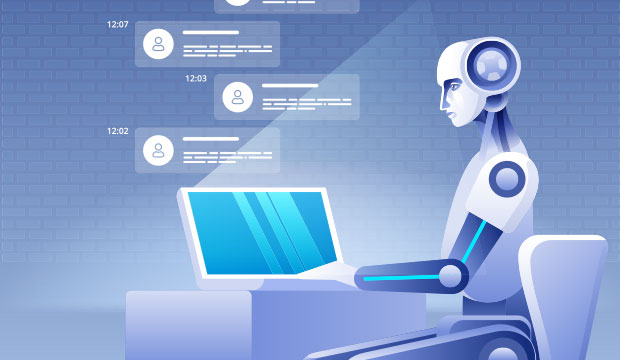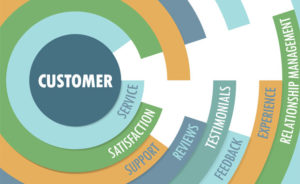Inbenta on Thursday released new application programming interfaces and software development kits that let enterprises customize chatbots.
The company offers an artificial intelligence-powered natural language search and conversational platform.
The new APIs and SDKs facilitate a number of chatbot capabilities:
- Intent detection — Inbenta’s chatbot tech uses a natural language processing engine to match users’ questions to appropriate answers after defining intent. Inbenta needs only one simple sentence to identify intent;
- Decision trees — Inbenta uses decision trees to define the flow of conversation the system will take. At every step of the tree, the Inbenta chatbot may ask clarifying questions to better understand the situation. If a user asks a question with great detail and enough context, the chatbot can make a direct match with a deep node of the decision tree;
- Transactional intelligence — The Inbenta chatbot uses Webhooks, an HTTP callback, to integrate business systems such as billing, CRM and inventory; to complete customer transactions; or to answer questions. Webhooks also can be used to create decision trees to gather additional information. When used as JavaScript callbacks, they can support encrypted connections.
- Content Digest — A newly designed Content Digest feature integrated with Inbenta’s natural language search engine lets the chatbot pull information from diverse sources such as an enterprise’s website, its knowledge base, or its technical documentation.
- Seamless escalation — Inbenta’s intelligence detects cues, or triggers, during the customer interaction, which signals to the chatbot when to turn the conversation over to a human agent, and selects the appropriate escalation path in real time.
Familiar Approaches
The tools may be new to users of Inbenta’s tech, but they are hardly innovations.
Webhooks, for example, have been around for about a decade, noted Holger Mueller, a principal analyst at Constellation Research.
“Nothing really new here,” said Rebecca Wettemann, vice president of research at Nucleus Research.
“From Inbenta, it’s going to be important to hear about time to value, speed of integration, and the ability to leverage outside data to improve chatbots dynamically over time,” she told CRM Buyer.
Although the announcements aren’t groundbreaking, they’re “solid blocking and tackling — a good way to integrate with third-party systems,” Mueller told CRM Buyer.
What Works for Inbenta
The key to what has been working for Inbenta “is an NLP engine that grows over time and, more importantly, the fact that answers are contextual,” observed Ray Wang, principal analyst at Constellation Research.
“In this area of chatbots and expert systems, infinite ambient orchestration is key,” he noted.
The chatbot’s ability to work automatically with back-end systems is a plus, Wang told CRM Buyer.
Further, the integration of Inbenta’s natural language search engine with its Content Digest “is not easy to do,” he pointed out, and it’s “something only a handful of vendors, including Inbenta, can do.”
Seamless escalation is another plus because “most systems have static rules and triggers,” Wang said. “It appears Inbenta’s doing this in a variable manner.”
Chatbots work well to answer Level 1 and 2 questions, he said. More complex scenarios still must be routed to humans, but they “must be tagged so the system learns why they were routed and how that resolution was addressed.”
The Need for AI Chatbots
Interest in custom AI chatbots has been growing, suggests a survey of 530 European and North American companies Spiceworks conducted last month. Among its findings:
- 3 percent of organizations with more than 500 employees had implemented custom-built AI chatbots;
- 6 percent planned to implement custom-built AI chatbots within 12 months;
- 11 percent of organizations with 100-499 employees planned to implement them within 12 months;
- 2 percent of businesses with less than 100 employees had implemented custom-built AI chatbots; and
- 10 percent of small businesses planned to do so within 12 months.
“Chatbots make available content from systems that normally have to be accessed by a human agent to tell someone else,” Constellation’s Mueller said. “This can work more and more in software alone.”



























































Social CRM
See all Social CRM